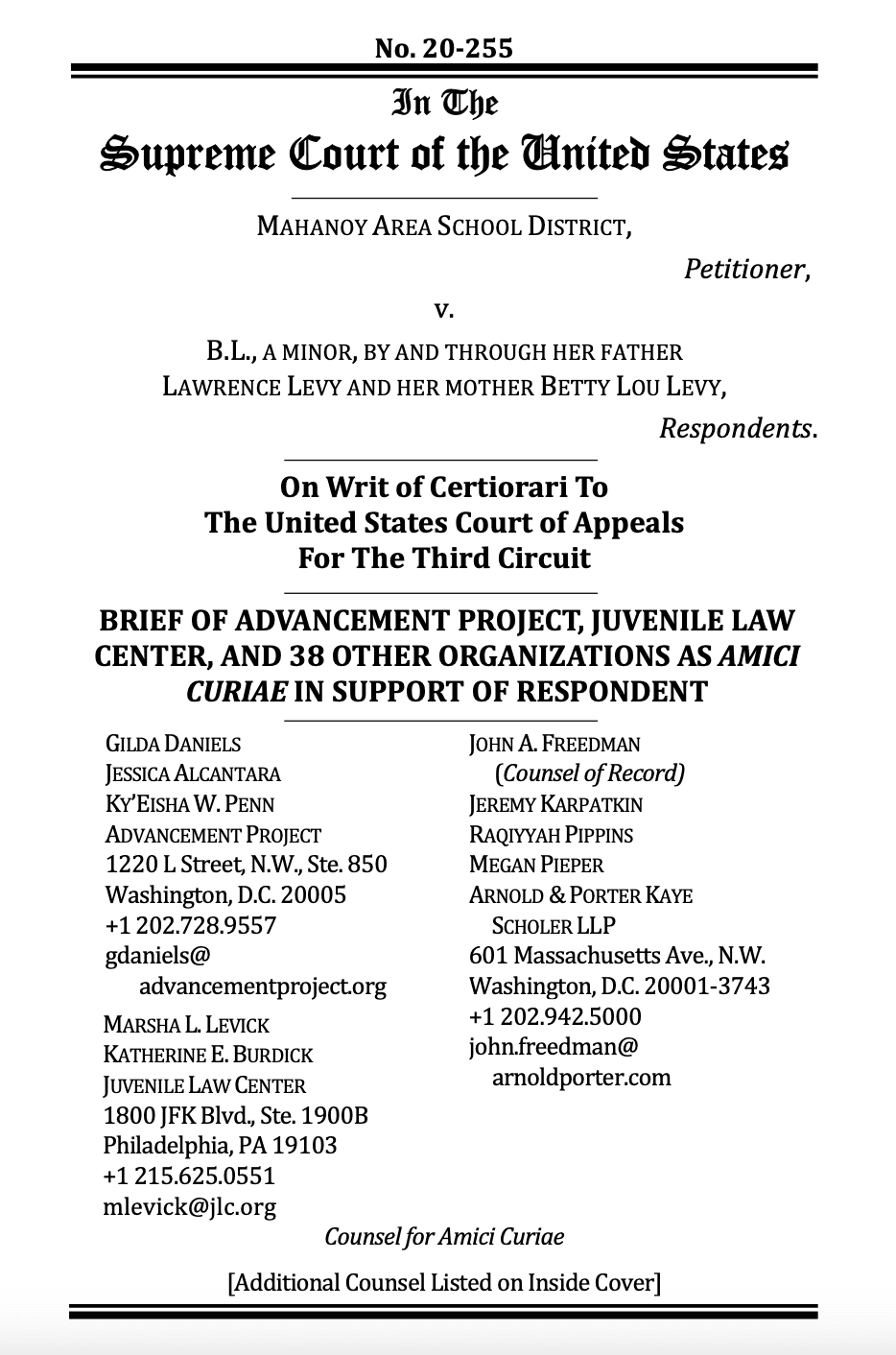
Summary of Argument
At issue in this case is whether students’ off-campus speech that is not threatening or harassing is entitled to full First Amendment protection or, instead, subject to the lesser protections set forth in Tinker v. Des Moines Indep. Cmty. Sch. Dist., 393 U.S. 503 (1969). Expanding the authority of schools to regulate off-campus student speech has “ominous implications” for students of color and other marginalized student groups who already face disproportionate and excessive discipline, particularly for so-called “infractions” that permit discretion and invite subjective interpretation. J.S. ex rel. Snyder v. Blue Mountain Sch. Dist., 650 F.3d 915, 939 (3d Cir. 2011) (Smith, J., concurring). Indeed, the highly subjective Tinker standard itself fosters discrimination because it empowers school officials to decide based on highly subjective and often arbitrary determinations which speech will “materially and substantially interfere” with school activities. Tinker, 393 U.S. at 509. This discriminatory trend is already evident nationwide as schools disproportionately discipline students of color, students with disabilities, and LGBTQ+2-identifying students, too often based on vague and subjective standards, such as “being disruptive, acting disrespectfully, tardiness, profanity, and dress-code violations.” Arne Duncan, U.S. Sec’y of Educ., Remarks at the Release of the Joint DOJ-ED School Discipline Guidance Package (Jan. 8, 2014), https://archive.is/Qh5wA.
Given the ubiquity of social media and students’ increasing reliance on it to express themselves, extending Tinker to off-campus speech risks sweeping age-appropriate, everyday youth interactions within the “material disruption” standard. As the Court has long recognized, the developmental stage of adolescence is marked by flawed decision-making that warrants specialized treatment. This case does not concern student speech that threatens violence or harasses others. Thus, allowing schools to regulate non-threatening, non-harassing off-campus student expression on social media will remove the space for healthy development, and further expose students of color and other marginalized students to risk of disparate discipline for this developmentally appropriate expression.
Finally, expanding Tinker to off-campus speech would undermine the Court’s efforts to calibrate legal standards to developmental science and subject students of color, students with disabilities, and students who identify as LGBTQ+ to potentially life-long adverse consequences.